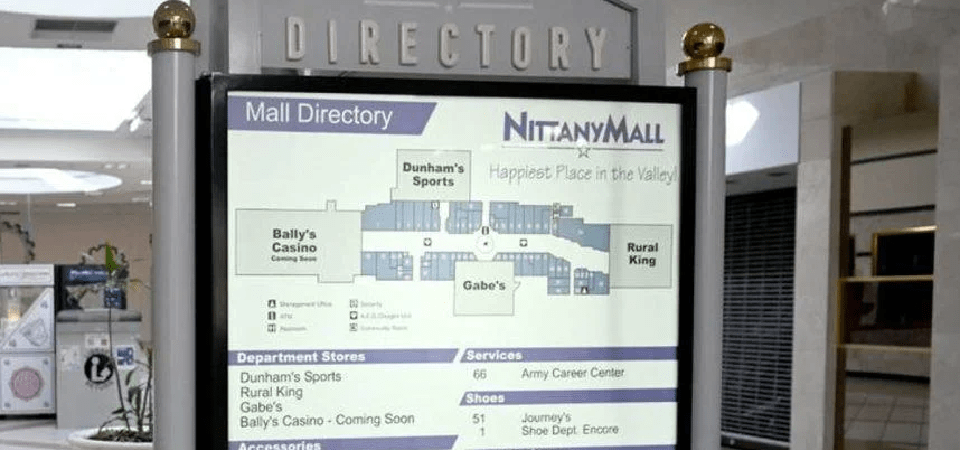
Bally’s Casino Plan Near Penn State Campus Wins Critical State Supreme Court Ruling
This week, the Bally's Corporation and its regional development partners in State College, Pennsylvania, close to Penn State University, won a significant legal battle.
More than 10 months after the Pennsylvania Supreme Court agreed to hear an appeal of the Pennsylvania Gaming Control Board’s (PGCB) decision to give a gaming license to a casino project at State College’s Nittany Mall, the state’s high court concluded that the plaintiff’s arguments are without substance.
The losing bidder for the Category 4 "mini-casino" license in the PGCB's September 2020 auction round, Stadium Casino RE, LLC, contested whether victorious bidder Ira Lubert had broken any application guidelines set down by the state gaming regulator. A 2017 gaming expansion package opened up Category 4 casinos, although only the state's current slot license holders and major concession investors were eligible to bid on the satellite locations.
Lubert was eligible for the auction because of his 3% ownership position in Rivers Casino Pittsburgh. At the same time, The Cordish Companies, the company building Live! Casino & Hotel Philadelphia, also owned Stadium Casino.
Rejecting the Challenge
The winning bid of $10,000,101 was put out by Lubert, but stadium attorneys claimed that he had broken PGCB bidding guidelines by forming a partnership with two other Pennsylvania businessmen, Robert Poole and Richard Sokolov, the latter of whom is currently a trustee of Penn State University. Stadium claimed that Poole and Sokolov's application ought to have been rejected because they were ineligible to submit separate bids.
The Pennsylvania Supreme Court this week didn’t agree.
"It is undisputed that although the funds were wired from Lubert’s account, he did not pay the entire amount himself, as various individuals and entities contributed funds toward the payment of the winning bid,” the court conceded.
However, Chief Justice Debra Todd, Justices Kevin Dougherty, David Wecht, Sally Updyke Mundy, Kevin Brobson, and Daniel McCaffery concurred with Justice Christine Donohue, who authored the court's majority decision, saying it rejects "Stadium's attempt to equate financial interests with ownership."
The court decided that Lubert currently has complete control over the Cat. 4 license, even though Poole, Sokolov, and anyone else—possibly even Bally's—who assisted Lubert in paying the $10 million fee within 48 hours of winning the Sept. 2, 2020, auction may have been informed they would receive a stake or shares in the future casino. For that to change, the PGCB would need to approve the additional owners after conducting background checks on those individuals/entities to make sure they’re suitable to hold direct ownership in a state gaming license.
The state Supreme Court came to the conclusion that Lubert behaved properly, or at least within the bounds of the law, and that the PGCB had appropriately scrutinized Lubert's bid or payment.
Casino Welcomed in Township
The former Penn State trustee introduced Bally's Corp. as the $123 million casino's construction partner and eventual operator approximately five months after Lubert, through his firm SC Gaming OpCo, paid the $10 million fee in exchange for the Cat. 4 license.
Early in 2021, the development firm disclosed plans to transform a former Macy's department store into a casino with up to 750 slot machines, 30 table games initially allocated, and a sportsbook at the Nittany Mall, which is located only a few miles from Penn State University's Main Campus.
While no timeline has been released, the Pennsylvania Supreme Court's ruling permits Lubert and Bally's to start building their mall casino.
A grassroots alliance of State College locals is still deluging Casino.org's coverage of anything pertaining to Bally's with criticism of the corporation, which is going through financial difficulties and has recently had its credit downgraded. Residents of Pennsylvania have voiced opposition to the potential establishment of a casino in their area and have directed their fury at Bally's recent operational missteps.
But perhaps the College Township Council should take more of the blame for the Bally's Pennsylvania project? In 2017, the PGCB gave towns the option to withdraw themselves from consideration for a Cat. 4 casino; by doing so, the council failed to object. Over a thousand other townships opted not to be considered.















